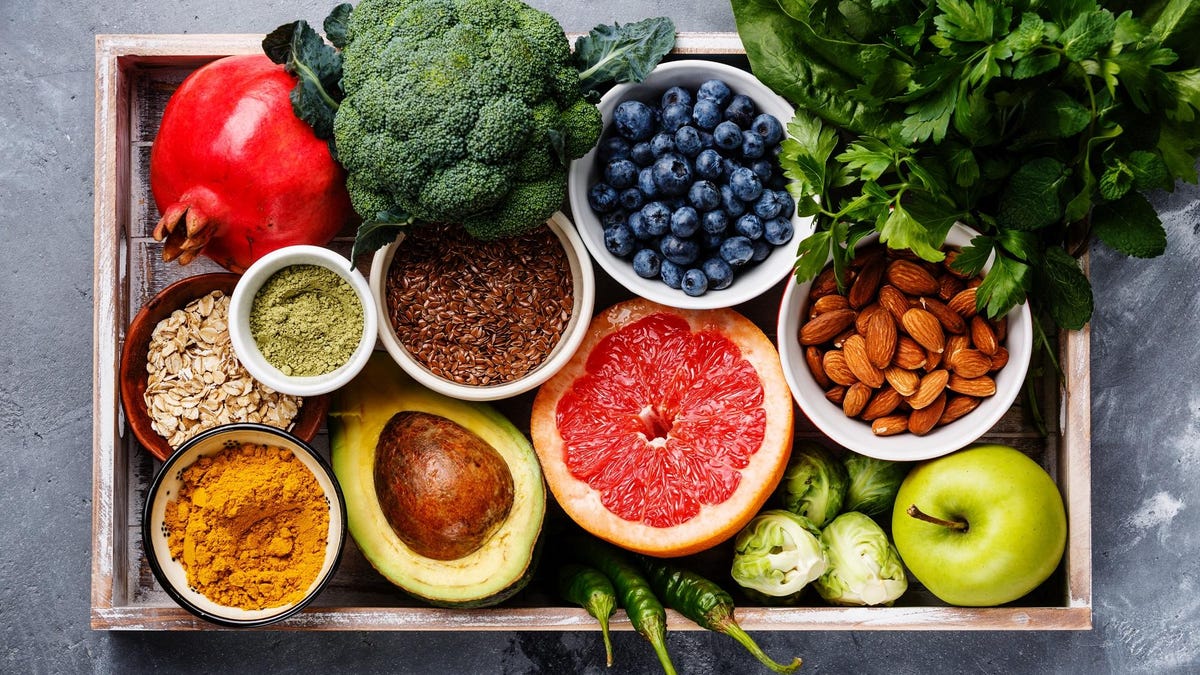
Superfood: Which Ones Live Up to the Hype?
In the bustling world of wellness, the term “superfood” is thrown around with fervor, promising a plethora of health benefits. These foods, purportedly rich in nutrients and antioxidants, have garnered substantial attention. However, amidst the buzz, it’s crucial to decipher which superfoods are genuinely worth incorporating into your diet and which might just be riding the hype train. In this comprehensive guide, we’ll scrutinize some of the most popular superfoods, diving into their nutrient profiles, health benefits, and practical tips on integration.
Unveiling the Superfood Mystery

Superfoods, according to Merriam-Webster, are foods exceptionally rich in compounds like antioxidants, fiber, or fatty acids, deemed beneficial for health. However, the lack of an official or scientific definition opens the door to marketing exploitation. As the American Heart Association warns, unrealistic expectations often surround these foods, with people hoping for miraculous protection against chronic diseases by merely adding a couple to a poor diet.
It’s paramount to understand that superfoods aren’t magical cure-alls but rather foods with high nutritional density, complementing a balanced diet. They should enhance, not replace, other healthy food choices.
The Challenge of Comparison
Comparing superfoods is akin to navigating a complex maze of factors influencing nutritional value and health benefits. Variables like origin, cultivation, processing, storage, preparation, and consumption make objective ranking elusive.
One method, though imperfect, involves assessing nutrient profiles and antioxidant capacity. Nutrients, encompassing vitamins, minerals, protein, fiber, and healthy fats, provide energy and support bodily functions. Antioxidants, crucial in fending off oxidative stress, can protect against chronic diseases.
The Oxygen Radical Absorbance Capacity (ORAC) test is one measure of antioxidant capacity. Yet, it’s important to note that high ORAC values don’t necessarily correlate with improved health outcomes. Consideration of factors such as availability, affordability, taste, and personal preference becomes crucial in choosing superfoods wisely.
Superfood Showdown: Top 10 Contenders

- Blueberries
- ORAC value: 4,669 per 100 gramsBursting with vitamin C, manganese, and anthocyanins, blueberries are more than just a delightful snack. Studies suggest benefits in memory enhancement, blood pressure reduction, and protection against cardiovascular disease and cancer.
- Kale
- ORAC value: 1,770 per 100 gramsA leafy green powerhouse, kale offers vitamin A, vitamin C, vitamin K, calcium, iron, and cancer-fighting glucosinolates.
- Quinoa
- ORAC value: 1,695 per 100 grams
- A versatile seed, quinoa is gluten-free, protein-rich, and aids in lowering cholesterol, blood sugar, and inflammation.
- Chia seeds
- ORAC value: 9,800 per 100 grams
- Tiny but mighty, chia seeds pack omega-3 fatty acids, fiber, protein, calcium, and antioxidants.
- Acai berries
- ORAC value: 15,405 per 100 grams
- Hailing from the Amazon rainforest, acai berries boast anthocyanins, fiber, protein, and healthy fats.
- Turmeric
- ORAC value: 127,068 per 100 grams
- Known for its vibrant color, turmeric contains curcumin, renowned for anti-inflammatory and antioxidant properties.
- Spirulina
- ORAC value: 24,000 per 100 grams
- A nutrient-dense blue-green algae, spirulina offers protein, iron, calcium, vitamin B12, and anti-inflammatory effects.
- Avocado
- ORAC value: 1,922 per 100 grams
- Rich in monounsaturated fats, fiber, potassium, and vitamins, avocado supports heart health, skin improvement, and weight loss.
- Cacao
- ORAC value: 80,933 per 100 grams
- The raw form of chocolate, cacao contains flavonoids, magnesium, iron, zinc, and mood-boosting theobromine.
- Goji berries
- ORAC value: 4,310 per 100 grams
- Small red berries from China, goji berries are rich in vitamin C, vitamin A, iron, zinc, and inflammation-fighting polysaccharides.
A Word of Caution
While these superfoods offer remarkable nutritional benefits, they should not substitute a diverse and balanced diet. Always consult with your healthcare professional before introducing new foods or supplements to your diet.
In conclusion, this exploration of superfoods aims to empower you with information and tips on making informed dietary choices. Here’s to your health and the joy of discovering the wonders of superfoods! 😊